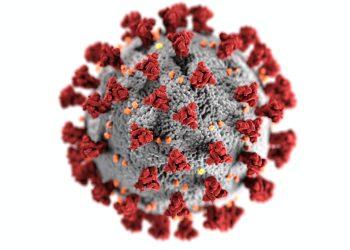DES MOINES, Iowa – State Auditor Rob Sand called for targeted spending out of the state’s rainy day funds to provide COVID-19 relief to Iowans during his annual budget review on Thursday afternoon.
“This is our rainy day. It’s been quite a year, looking forward to it being over, looking forward to the pandemic being done. Everybody from the top to the bottom, we’ve all had to face a lot of difficult decisions this year,” the Democratic state auditor said. “Restaurants and bars lose $1.4 billion, and 88 percent are projecting an additional decline over the next three months still. We’re not out of the woods yet; 1000 are expected to close. This means a lot to small towns.”
“There are a lot of towns around Iowa, Decorah-size (2010 est. 8,127) or smaller, where you really only have maybe one or two restaurants, places where people can gather. And they do really give a sense of community to those places. Those places where people want to live and they want to be. It’s not easy to simply replace them once they’re gone. One in nine Iowans work in small businesses, additional closures will be a major job killer across the state of Iowa,” Sand added.
He also noted that hospitals in Iowa lost $443 million even with federal assistance that, along with losses due to Medicaid privatization, puts rural hospitals, in particular, at risk.
With the current cash reserves and estimated surplus in FY21, the state is projected to have $1.2 billion in its cash reserves this summer.
“There’s a lot of room to protect lives and livelihoods – through increasing testing, providing small business relief grants, income assistance. Well, we can still be fiscally responsible. Targeted spending now is the best investment towards ending the pandemic and having a normal to return to. When I say having a normal to return to, I’m talking about having that restaurant still be there when this pandemic is over in that small town. Having your neighbor’s livelihood, their business, still be something that they can continue doing when this pandemic is over,” Sand said.
“And targeted spending is the most effective way right now to make sure that we can have that normalcy to return to rather than coming back to an Iowa when we’re outside of this pandemic that feels like it’s been gutted,” he added.
Sand said Iowa shouldn’t leave pandemic relief solely up to the federal government. He said that the legislature could spend up to $290 million in the rainy day funds for non-recurring expenses, and, if three-fifths of the legislature approved it, could spend up to $597 million.
He added there will still be hundreds of millions in cash reserves at the end of FY 21.
“With hundreds of millions of dollars in a surplus, every day of delay this is not happening hurts Iowa’s health, hurts Iowa’s jobs, hurts Iowa’s economies. We could have done this months ago, through a special session. We could do it today through a special session. Every day of delay is another day of pain for Iowans around the state. This money belongs to Iowans, and it should be in their hands to help survive this pandemic, not sitting in state government’s accounts,” Sand said.
Republicans are looking at tax reform this legislative session, but he said it would be too broad in the short-term to make much of a difference.
“Almost any tax cut would go later, not right now, to the people who need it less, not the people who need it more. At the end of the day, if we want to get through this pandemic, and again, have our social fabric intact, have those restaurants that we like to go to be there, have those small businesses that define our communities be a part of our communities; we need to get the money out faster than that. And it needs to be targeted, as opposed to a broad-based approach where we’re just putting hands putting more money in the hands of people for whom the pandemic has been an inconvenience, but not a life-threatening experience,” Sand argued.
Listen to his presentation below:
Read his slide show presentation:
Budget Presentation Final














